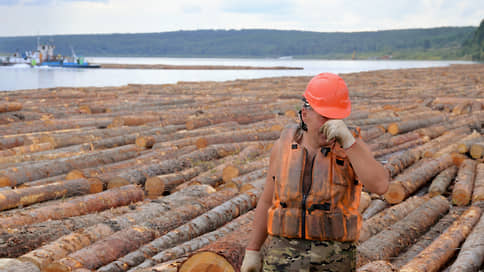They cut the forest – the rates fly – Newspaper Kommersant No. 170 (7371) of 09/15/2022
[ad_1]

The government is looking for new options to increase the rental rates for the use of forest plots, which is opposed by industry players. If initially it was about increasing the coefficient from 2024, now it is proposed to work out a damper mechanism, within which the rental rate will depend on the situation on the lumber market. Industry participants consider the initiative unrealizable, and the discussion of a rise in rent prices is untimely.
In early September, the Ministry of Industry and Trade sent an appeal to timber companies, in which it asked for their opinion on raising the rent for federally owned water bodies and forest plots. How much it is proposed to raise rates, the letter does not indicate. In the draft government decree, which is currently under discussion, it is planned to increase them in 2024 by 3.06 times, in 2025 – 3.18 times (to the current level), and in 2026 – up to 3.3. At the same time, according to the Ministry of Industry and Trade, companies should take into account that the increase in rates is aimed, among other things, at creating sources of financing for additional budget expenditures on protecting forests from fires and flood control measures. Industry participants had to send answers before September 7th.
Over the past few months, timber companies have sent several proposals to officials on measures to support the industry in the current situation, insisting, among other things, on maintaining rental rates at the current level. Ilim explained to Kommersant that in the current geopolitical and macroeconomic conditions they do not consider this proposal timely. “The increase in rates will lead to an increase in the number of unprofitable enterprises and to a decrease in the investment attractiveness of the timber complex as a whole,” they said.
A similar opinion is shared by the general director of the ULK group (the largest lumber manufacturer in Russia) Vladimir Butorin. He notes that prices for products of sawmills have decreased three times over the past six months, and the cost of logistics against the background of the reorientation of the main export flows from Europe to China and other Asian countries has increased three to four times – from $30 to $140 per cubic meter. Because of this, all lumber production in the central and northwestern parts of Russia suffer losses and can stop at any moment. Vladimir Butorin notes that an effective measure would be to subsidize half of the transport costs of timber companies. According to him, on September 13, these issues were discussed at a meeting with Deputy Prime Minister Victoria Abramchenko, and on September 14 – in the government.
According to the results of the meeting, as reported on the government website, Victoria Abramchenko instructed the Ministry of Industry and Trade, the Ministry of Natural Resources, and Rosleskhoz to work out a damper mechanism for rental payments. In particular, with a decrease in the cost of timber industry products, it is proposed to evenly reduce the fee, and with an increase in the cost and, accordingly, the income of timber industry enterprises, it is expected to increase. Also, the government will continue to consider the proposal of the Ministry of Industry and Trade that the export logistics subsidy could cover 100% of the costs (now – 80%), and its maximum amount was increased to 1 billion rubles. (currently 300 million rubles) for the most affected enterprises.
The head of Roslesinforg, Pavel Chashchin, notes that the average cost of renting 1 hectare of forest for harvesting in Russia is 300 rubles. per year, while the rates for wood are formed based on the species, quality and distance of removal and are indexed once every few years. According to him, in other large regions of logging – Europe, the USA and Canada – the rent for forests is many times higher. At the same time, Mr. Chashchin believes, in an already difficult situation, it is not worth raising rent payments, because in the first place this will negatively affect small and medium-sized businesses. He recalls that the effect of the decree on the application of new coefficients to rental rates is designed for 2024-2026, when the situation stabilizes. The head of “Roslesinforga” believes that the rental approach to the formation of fees, which will take into account the dynamics of prices for raw materials and finished products, is more beneficial for both the state and tenants.
Kommersant’s source in the industry considers the government’s new initiative to link rental rates to fluctuations in market prices unrealizable. Kommersant’s interlocutors indicate that quotes for different products from one plant can be multidirectional, and logging and exports can be registered in different legal entities. And Alexander Dyatlov, chairman of the Arkhangelsk Regional Duma Committee on Timber Industry, Nature Management and Ecology, notes that the failure in the Russian timber industry may last several years, so that in two years the increase in rates will be critical for companies. In his opinion, if export logistics are not established, enterprises may begin to stop.
[ad_2]
Source link





